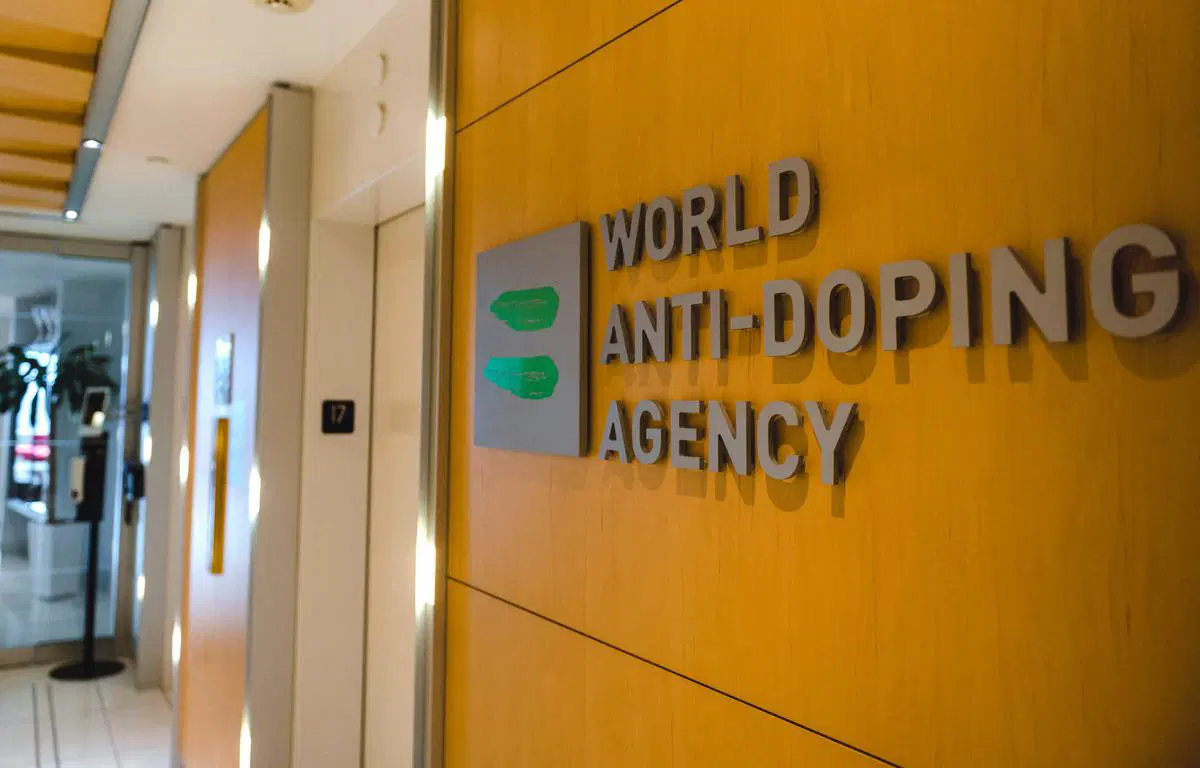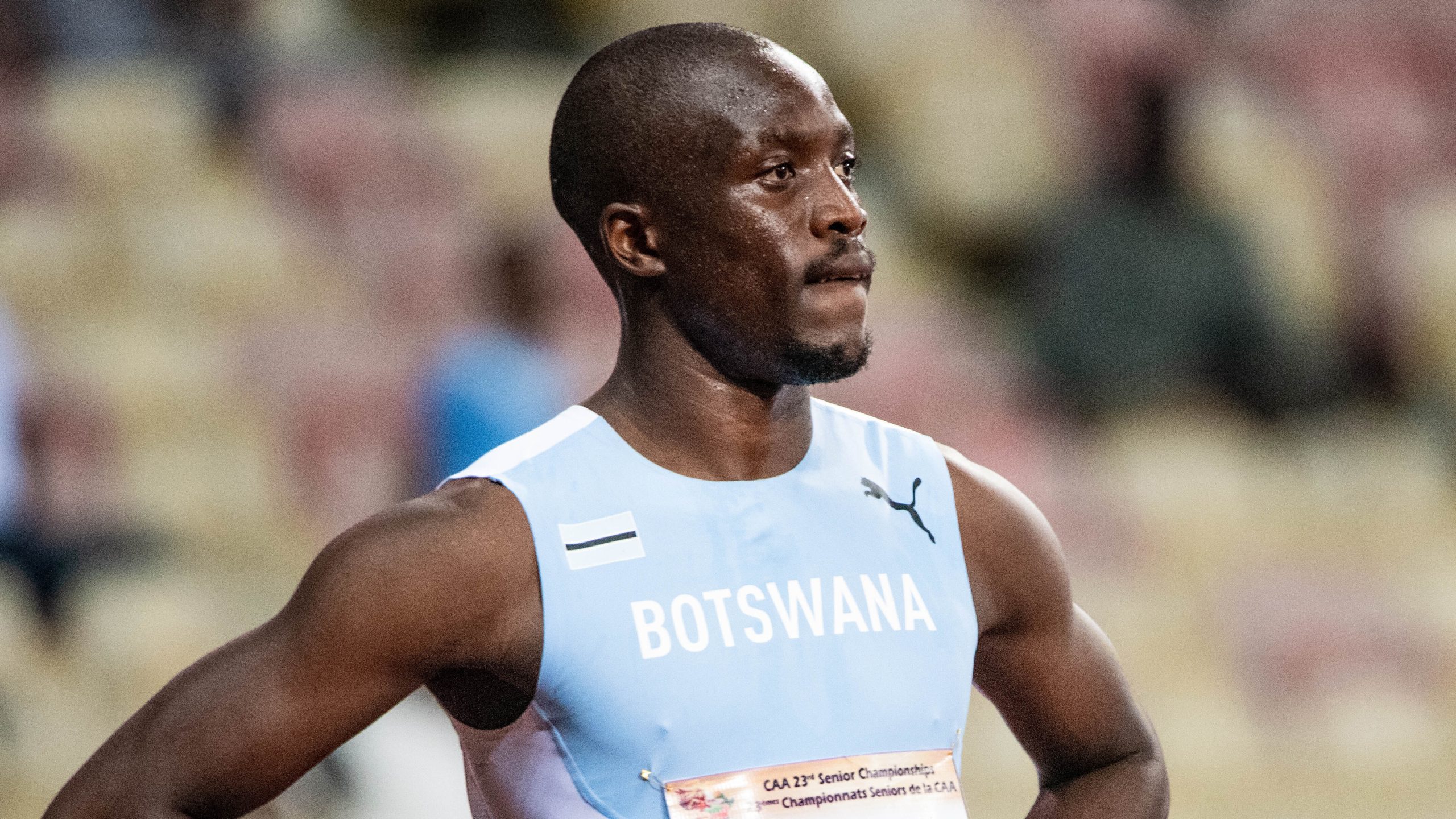
Twenty-one years ago, Nigeria’s former 400m hurdler, Victor Okorie, was part of the nation’s contingent to the then IAAF World Athletics Championships in Saint Denis, France. With no training grants to aid their preparations, a team of 15 men and 12 women left Lagos and arrived in Paris to compete with their counterparts from other parts of the world, who were ready for the greatest track and field showpiece.
The Nigerian team, which had top athletes such as, Deji Aliu, Uchenna Emedolu, Mary Onyali, Endurance Ojokolo and Vivian Chukwuemeka, failed woefully in Paris, as the athletes ran into heavy storm. None of them could make any appreciable impact at the championships. Now, Okorie feels there is the need for the Federal Government to learn from past mistakes to save Team Nigeria from another pitfall in Paris.
“Training grants are meant to assist athletes in their preparations for a major competition,” Okorie told The Guardian from his base in the United States during the week. “We got to the competition venue in Paris in 2003, only for our officials to hand an envelope containing some hard currency over to us. They said, ‘this is your chopping grant’. It was a shock to me because that was the first and only time I heard such word in my entire sporting career.
“‘Chopping grants’ in place of training grants for athletes? It was so sad, but it happened in Nigeria’s sports. We ended up not doing well at the championship because of our poor preparations,” he said. One of the sad memories of Paris 2003 IAAF Championships was the protest by Nigerian athletes, and their subsequent boycott of the 4x100m and 4x400m relay for women. Rather than take responsibility for the failure, the then leadership of the Athletics Federation of Nigeria (AFN) sanctioned 10 of the athletes, while the sports ministry set up an enquiry.
The rest is history. Okorie, who is now a board member of the AFN, wants the Federal Government to learn from past mistakes and take proactive steps as build up to the 2024 Paris Olympics Games hots up. “Training grants are meant to aid athletes’ preparations for major competitions, and it is not money you pay as chopping grants at competition venue,” Okorie said.
“Majority of our athletes who have booked their tickets to the Paris 2024 Olympics are based in the United States. They need the training grants to take care of their bills to prevent them from competing in all manner of events and getting burnt out before the Olympics. Okorie, a silver medallist at the 2003 All African Games in Abuja said: “This is the time our athletes need the training grants to pay their coaches/managers, physiotherapists, nutritionists, and also pay for facilities they use at the stadium in their build up to the Olympics.
That is the practice in other countries, and Nigeria should not look the other way. “I know that the Sports Minister, John Owan Enoh and the AFN president, Tonobok Okowa, want to achieve good results at the Paris Olympics. It can only be possible if the Federal Government takes move fast to avoid a repeat of the past mistakes,” Okorie stated. From generation to generation, Nigerian athletes have demonstrated that they have what it takes to win Olympics gold medals if the right things are done at the right time.
In the early 90s, the Ezinwa brothers (Davidson and Osmond) played prominent parts in the glamorous past of Nigerian athletics. Those were the days Nigeria totally dominated the sprints events in Africa and also ruffled feathers at the world stage. Davidson burst into the limelight at the 1990 IAAF World Junior Championships in Plovdiv, Bulgaria, where he won the men’s 100m, setting a world record of 10.05 seconds, which was erased in 2003. As a senior athlete, he participated in his first Olympics at Seoul ’88, and then in Barcelona 1992, where he, alongside Olapade Adeniken, Kayode Oluyemi and Chidi Imoh, won a silver medal in the 4x100m relay. His twin brother, Osmond, who ran during the heats also got a medal.
At the World Championships in 1997, the Ezinwa brothers, Olapade Adeniken and Francis Obikwelu won silver in the 4x100m. Davidson ran the final leg of the race, and was only out paced by Canada’s Donovan Bailey in the epic final to clinch the gold. However, their ‘golden era’ did not give Nigeria an Olympics gold medal owing to wrong calculations by the Federal Government and poor execution by officials of the sports ministry. Then came the era of Africa’s Queen of the Tracks, Mary Onyali and ‘the gang,’ which included the likes of Charity Opara-Thompson, Beatrice Utondo, Mary Tombiri and Faith Idenhen (100m, 200m and the 4x100m relays), as well as quartermiler, Falilat Ogunkoya, in the 400m. Onyali represented Nigeria five times at the Olympic Games, from Seoul ‘88 in South Korea to Athens 2004 in Greece. Apart from leading the Nigerian 4x100m relay team to grab a bronze medal at Barcelona ‘92 Olympic Games, Onyali won a bronze in the 200m at Atlanta ’96 Games. At that same Atlanta ’96 Olympics, Ogunkoya won a bronze medal in the 400m, behind Marie-José Pérec of France and Cathy Freeman of Australia, running a personal best and African record of 49.10secs, which is currently the 12th fastest of all time. The Onyali era had what it took to win gold at the Olympics, but for many wrong steps of government.
Perhaps, if not for the individual efforts by former Green Eagles captain, Chief Segun Odegbami, who brushed aside government’s bureaucratic bottleneck to give Chioma Ajunwa the managerial tutelage prior to the Atlanta ’96 Olympic Games, the precious women long jump gold could have eluded Nigeria. Till date, Ajunwa’s gold medal in the long jump (7.12m) and the one from football remain the best moments for Nigeria at the Olympics Games. Not even the era of Blessing Okagbare could fetch the country another gold medal despite her great performances in build up to four Olympic Games.
In the build up to London 2012 Olympics, Nigeria’s medal hopes were on the shoulders of Okagbare. Then, the Sapele-born sprinter, who is currently serving ban for drugs, was not only among the top stars in the world, but one of the favourites to win the 100m title.
However, unlike other athletes, Okagbare enjoyed financial support from Delta State government. But rather than keep her cool and reserve her energy for the Olympics Games proper, she allegedly brushed aside counsels, as she burnt herself out owing to a lot of races in the U.S. and other parts of the world that she participated. By the time Okagbare arrived in London for the Olympic Games, her energy reserve was almost exhausted. Though, she made it to the final of the 100m, Okagbare ended up in the last position with a disappointing 11.01secs on a day so much was expected from her. For the U.S.-based Victor Okorie, if the situation is well managed now, the Paris 2024 Olympic Games might just be the long awaited golden moment for Nigeria.
Okorie was part of AFN officials to the recently concluded World Relays in the Caribbean Island, Bahamas, where Team Nigeria, against all expectations, picked four relay tickets out of five for the Paris Olympics. “Our athletes are in their best of forms at the moment, and I believe they can win Olympic gold medals at the Paris Olympics, if government plays its role well,” he said. “If the likes of Tobi Amusan, Ese Brume, Chukwuebuka Enekwechi, Favour Ofili, Chidi Okezie, Samuel Ogazi, Ella Onojuvwevwo, Ruth Usoro, Justina Eyakpobeyan, Olayinka Olajide, Tima Godbles, Godson Brume, Udodi Onwuzurike and others, who have booked their tickets to the Olympics, get training grants in time, it will help them in their preparations and also stop them from burning their energy in ‘small competitions’ in the U.S. and Europe.
“There are other Nigerian athletes who have qualified in wrestling, boxing, basketball, chess and table tennis. They also need training grants to prepare well for the battle in Paris.
“As I said earlier, the sports minister and AFN president have good intentions to halt the long wait for Olympics gold medal in Paris, but the right thing must be done. You don’t wait until you get to a competition venue before athletes are given training grants. Things do not work out that way. I must give credit to the Sports minister and his Performance team lead by Professor Ken Anugweje for the good job so far,” Okorie stated.






